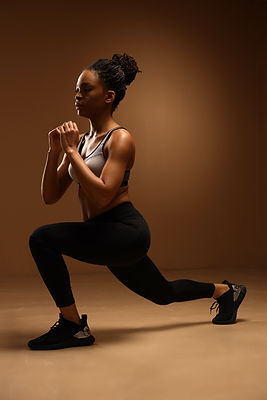Mobility Assessment
Throughout life, we experience both injuries and issues related to the natural aging process that contribute to impaired balance and mobility. Regular assessment of mobility is essential to ensure that appropriate support is provided to help mitigate further injury and pain. and allow you to continue to do the things you love doing!
We recommend a full-body mobility assessment completed by one of our exercise specialists. A set of tests is conducted to assess and measure the range of motion, flexibility, and stability of an individual’s joints and muscles. These tests are often performed to identify any limitations or imbalances in the body that may cause pain or injury during daily activities or exercise. Mobility tests can also help individuals understand their body’s strengths and weaknesses. This is a well-informed tool to be used by you, and your fitness coach to develop a personalized plan intended to improve your overall mobility and prevent future injuries.
Key Takeaways:
-
Mobility tests are used to measure an individual’s range of motion, flexibility, and stability.
-
Several types of mobility tests target different areas of the body and require different equipment or assistance.
-
Mobility tests can help individuals identify limitations or imbalances in their body, and develop a personalized plan to improve their overall mobility and prevent future injuries.
Mobility testing with an exercise specialist is encouraged for your fitness program to assess range of motion and flexibility. This valuable information can be used to develop your personalized fitness program, addressing any areas of weakness or limited mobility. Mobility testing may be useful for tracking your progress and adjusting your fitness program as needed.

Full Body Assessment
A full-body mobility test assesses the range of motion and flexibility of different joints and muscle groups in the body. The test typically includes assessments of the neck, shoulders, back, hips, knees, and ankles. The components of a full-body mobility test may vary depending on the specific goals of the assessment and the needs of the individual being tested.

How Long Does It Take?
The standard duration of a mobility assessment can vary depending on the specific tests being performed and the goals of the assessment. A full-body mobility assessment can take anywhere from 30 minutes to an hour to complete.
.jpg)
What tools are used?
The most commonly used tools for conducting mobility tests include goniometers, which measure joint angles, and inclinometers, which measure the range of motion of specific joints. Other tools that may be used during mobility assessments include foam rollers, resistance bands, and stability balls.



